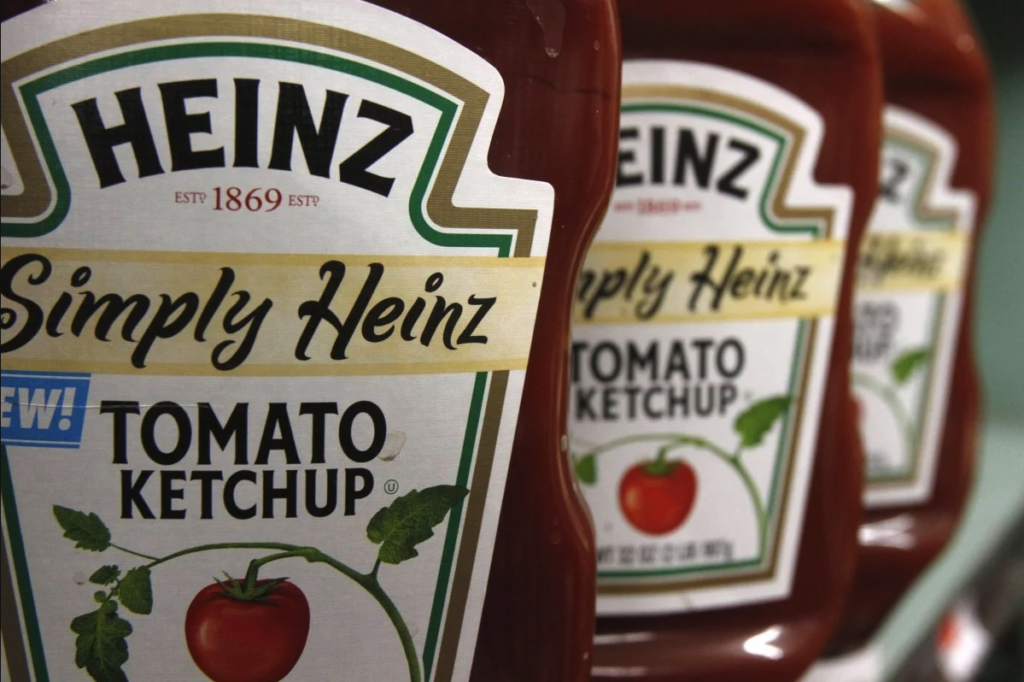Ketchup isn’t even American – The Language of Food explains how tomato sauce has origins in Vietnam, Cambodia and Indonesia dating back to the 17th century – South China Morning Post

|
Getting your Trinity Audio player ready...
|
SOURCE: Victoria Burrows | South China Morning Post
Ketchup, that thick, sweet and tangy tomato sauce that goes hand in hand with burgers and fries, is a true American culinary classic – or is it?
Old American recipes show that tomato is a relatively new addition to ketchup, only appearing as an ingredient from the early 1800s. According to The Language of Food: A Linguist Reads the Menu, by Dan Jurafsky, a professor of linguistics and computer science at Stanford University, from about 1750 to 1850 “ketchup” mainly referred to a thin dark sauce made of fermented walnuts or mushrooms.
.

You can’t have a burger and fries without Ketchup. Photo: Getty Images
British colonists took ketchup recipes to the USA, where they were adapted. The first cookbook to be published in the American colonies was the 1742 edition of Eliza Smith’s The Compleat Housewife, or, Accomplished Gentlewoman’s Companion, which was first published in Britain a couple of decades earlier.
“Ketchups in England date back at least to 1727, when Eliza Smith gave a recipe for ketchup made from anchovies, shallots, white wine vinegar, two kinds of white wine, cloves, ginger, nutmeg, mace, whole peppercorns and lemon peel,” said British food writer Matthew Fort, who recently worked together with executive chef Anthony Garlando at Aqua Shard in London to launch the Forgotten British menu, which brings back to life old recipes dating from hundreds of years ago.
The connection to Asia comes through another old recipe from 1732 titled Ketchup in Paste, which referenced “Bencoulin in the East Indies” as its origin. The British had a trading post in Bengkulu on Sumatra, Indonesia, in the 1690s and historians posit that this is how the word “ketchup” first entered the English language.
.

Deep fried sea bass with fish source. Photo: Getty Images
“Many in Hong Kong believe that ‘ketchup’ derives from a hypothetical Cantonese word ‘ke jiap’, or ‘eggplant sauce’. Since tomatoes in Cantonese are called ‘foreign eggplants’, the intuition is that ‘ke jiap’ was somehow short for ‘faan ke jiap’, or ‘tomato sauce’,” says Jurafsky in his blog, The Language of Food. “I used to hear this folk etymology from friends all the time in Hong Kong, but it can’t be correct since, as we’ve seen, the original condiment was borrowed, together with its name, hundreds of years before the tomatoes were added.”
Instead, it is believed that ketchup is an archaic word for fish sauce in the Hokkien dialect, a fact which is supported by a Hokkien to English dictionary compiled by missionaries in 1873 that gives pronunciations in various subdialects as kôe-chiap in Quanzhou and kê-chiap in Zhangzhou.
But while the etymological root of ketchup is likely Chinese, the sauce itself was probably from Southeast Asia. According to culinary historians Naomichi Ishige and H.T. Huang, fermented fish sauces had been in existence in China since about 300BC, but by 50-100BC, demand for fish pastes had been replaced by a market for fermented bean products. In the 17th and 18th centuries, fish sauce from Vietnam or Cambodia was brought up the southeastern coast of China by sea traders. These same Hokkien traders also took the sauce to Indonesia.
.

Kecap manis ingredients. Photo: Getty Images
Today, “kecap” is still used in Indonesia to refer to various sauces, particularly soy sauce.
In America, however, ketchup now generally refers to just one: that bright red gloop that is lavished on French fries and other fast food.
.
This article was originally published on South China Morning Post. You can view the original article at https://www.scmp.com/magazines/style/well-being/article/3108807/ketchup-isnt-even-american-language-food-explains-how


